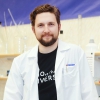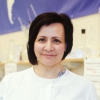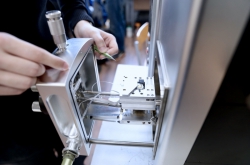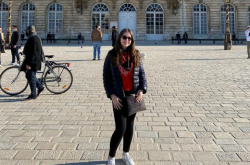How to start making connections with French universities
The “André Mazon” program is an integral part of the overall policy of cooperation of the French Embassy in Russia in the field of science and education and acts as a form of financial support for researchers along with other embassy programs. The program finances visits of scientists and professors, schoolteachers, public or private scientific organizations from France to Russia and from Russia to France. It is not limited by area of research.
The programme includes short-term trips, that is, visits to a foreign university lasting up to five days. Preference is given to applications, which aim to establish new ways of structured cooperation, both scientific and educational. For example, scientists can use the grant to agree on establishing joint educational programs, organizing joint laboratories and participating in common projects.
To continue the “André Mazon” program scientists from France and Russia will participate in joint projects of several levels: French and regional programs (CNRS, ANR etc.), Russian programs (federal target programs, programs of Russian universities), European projects (in the framework of Erasmus + programs, Horizon 2020), as well as in other forms of co-financing (Belmont program and others).

Cooperation between ITMO University and the University of Lorraine
Recently the Head of the International Research Center "Biotechnologies of the Third Millennium" Denis Baranenko and Associate Professor of the Applied Biotechnology Department Ludmila Nadtochii have won the grant and visited URAFPA and LIBio laboratories of the University of Lorraine.
The university has an urban campus in Nancy and is one of the top-ranking universities in France and worldwide. The university is one of the leaders in the field of mathematics, ranking 151th in the world in this subject area. In addition to this, the university is very active in other fields from social sciences to engineering. One of the key areas is food and biotechnologies, as well as agricultural research.
Denis Baranenko points out that the discussion of joint projects with French colleagues began in December last year. Like scientists from ITMO University, researchers from the University of Lorraine develop nano-objects for the food industry, conduct pre-clinical studies of their effectiveness and study the influence of various factors on neurodegenerative diseases’ development - for example, Alzheimer's and others.

Among other interdisciplinary research areas that the School of Biotechnology and Cryogenic Systems is engaged in, are refrigeration technology of food products, studying and developing effective freezing processes that increase the shelf life of products, reduce the influence of various factors on the quality indicators of food systems, etc.
“We regard the University of Lorraine as one of the leading research centers in brain aging mechanisms. We are planning to work with the UR AFPA laboratory of the University of Lorraine on this project. Scientists from the laboratory are focused on developing potential strategies for reducing the risk of developing neurodegenerative diseases, in particular Alzheimer's. Of special interest to us are the studies on the relationship between human diets and aging mechanisms, including studies of the effect of the lipid fraction on the biochemical processes taking place in the brain. Equally important to us is the cooperation with the LIBIO laboratory of the University of Lorraine, where scientists work on solving problems in the field of biochemistry, physical chemistry and microbiology. ITMO University focuses on biotechnological solutions in the areas of biologically active substances encapsulation for their subsequent use as a part of functional products with specified properties”, comments Denis Baranenko.
The benefits of the joint work are already ripening in the form of collaboration on Daria Kuznetsova’s project, a postgraduate student of the Applied Biotechnology Department and an employee of the International Science Center "Biotechnology of the Third Millennium". The idea behind the project is studying and developing functional foods that can prevent neurodegenerative diseases. The study will result in developing a vegetable oil-enriched cheese product. This year Daria became one of 60 winners of the the Eiffel Excellence Scholarship Program 2018 at the PhD level. The next ten months within the program, she will be able to conduct research in two laboratories of the University of Lorraine (more about Daria Kuznetsova’s project here).

Future Possibilities
Denis Baranenko and Ludmila Nadtochii had several meetings not only in the University of Lorraine, but also with Frantz Fournier, the Director for Academic Affairs and International Cooperation of the ENSAIA School, specializing in research in agriculture, food technology, biotechnology and ecology, as well as Nathalie Fick, the head of the international department at the University of Lorraine.
During the meetings, the parties agreed on a return visit of French scientists to ITMO University, and discussed the ways for further cooperation in the fields of research and education.
“We discussed the possibilities for opening joint educational programs, since the areas of our work are really very close; in addition, we have many common scientific interests. The University of Lorraine has interesting Master’s formats, so we plan to create opportunities for cooperation in this area in the future. We have students who are ready to study in French. For our part, we are also interested in bringing students from abroad to visit us”, says Denis Baranenko. “It is worth noting that all French Master students have to spend at least one semester in a non-French-speaking university and carry out research there. We can organize internships in English for such students”.

Additionally, the scientists discussed collaboration in more detail and agreed on scientific samples exchange. This will become the basis of joint publications, which, in turn, should create a serious scientific basis for various international grants application, including applying as part of international consortia within the Horizon 2020 program.
Translated by Pavel Vorobyev





